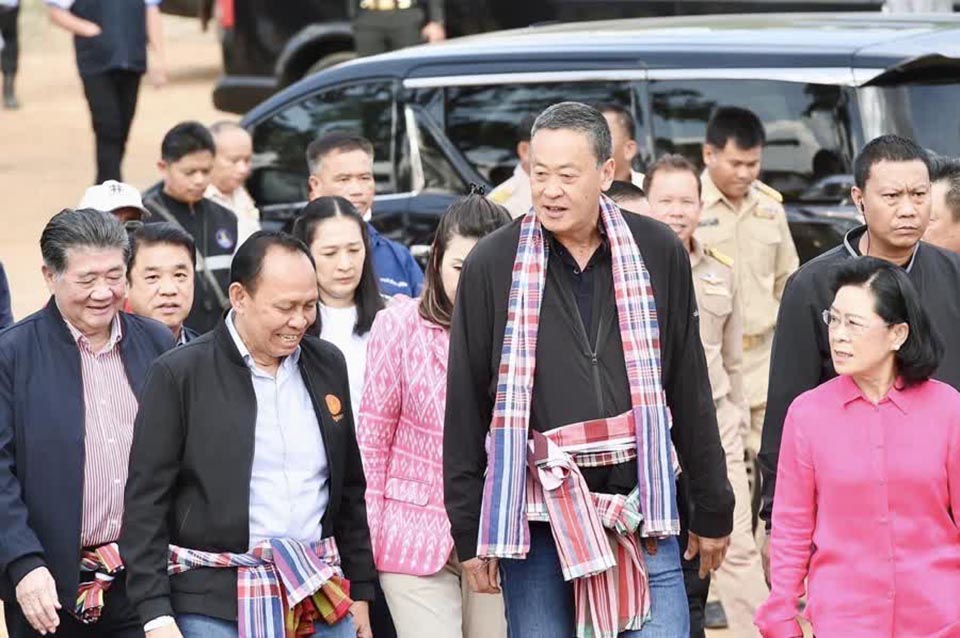
Efficient water management has become a paramount concern for the government as it seeks to ensure the sustainability of agricultural practices and mitigate the risks of both drought and flooding. Recent inspections have been conducted in various provinces to safeguard communities from the potential consequences of water-related challenges.
Prime Minister Srettha Thavisin has taken a personal interest in this initiative, using his Facebook account to underline the significance of effective water management. Following a recent on-site visit to Udon Thani province, he stressed the government’s unwavering commitment to maintaining a “no flood – no drought” scenario.
Prime Minister Srettha also drew attention to a pressing issue: only one-third of the annual rainfall is being adequately stored, while the remaining water flows away untapped. Urgent action is needed to address this situation, and he expressed his optimism that, with the right knowledge and market access, Thai farmers’ income could experience substantial growth over the next four years.
An example of effective water management can be found in the Huai Pak Baeng Reservoir Project, which is now considered a model for other regions to emulate. The Prime Minister emphasized that the government is prepared to provide support to such projects, particularly in cases where budgetary constraints or other challenges may arise, emphasizing the importance of expediting water storage initiatives.
The Office of The National Water Resources has also recognized the need for strategic planning to combat droughts and floods. Vigilant monitoring efforts have been underway throughout the 2023 rainy season in collaboration with relevant agencies, with a primary objective of minimizing the impact on the public.
The Office has unveiled comprehensive plans for advanced water management over the next two years. These plans include measures to address the potential impact of El Nino conditions, with the ultimate aim of ensuring a consistent and reliable water supply for the nation through 2025. (NNT)






